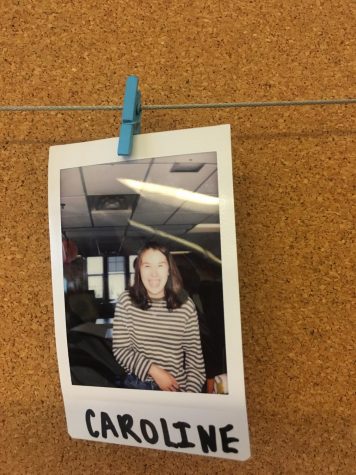On the first day of school, Spanish teacher Jon Dicus asked his students how many of them had read a book, in any language, for pleasure over the summer. Only two students raised their hands.
Due to limited time, as well as lack of interest, pleasure reading of an actual book has become foreign to many students. “If I’m going to read out of school, I’m reading to entertain myself, and if I’m trying to entertain myself, reading is one of the worst options,” explains James Killilea ’20, “In less time, watching a TV show, I can get more humor and more emotion. You have to get into a book more.”
However, reading can be extremely beneficial. Dicus explains, “It’s healthy for one’s development, but is also a creative outlet, and allows us to see things that the writer is depicting in our own mind, in our own way.”
In an attempt to remedy this disconnect, parents have placed pressure on English teachers to incorporate choice reading into their curriculum in an effort to excite students to read for pleasure. But with already enormous tasks to accomplish, teachers and students question whether choice reading should have a place in English class curriculum, or in school at all.
In English classes, literature acts as a vessel to bridge the theoretical to the absolute. “We’ve looked at this text, and we come together, and we talk not only about what the words on the page mean but what this sort of means to us as human beings in a complicated time, with a complicated past. It’s a shared experience,” explains English teacher Cory Tao.
With all of this to accomplish, perhaps establishing a love of reading is an unrealistic and somewhat unfair expectation. “I don’t know if anyone is saying to your math teacher, ‘but do they go home and do math? But do they love math?’ That’s a lot to be saddled with,” argues Tao.
Even if English classes do not directly encourage a love of reading, Samantha Stocking ’19 believes that English classes should not extinguish this love. “It’s a shame if an English class stops people from finding a love of reading outside of school,” she explains.
Even if nurturing a love of reading is the job of an English teacher, choice reading may not be the most effective option. While some students may choose to read literature if given a choice, a reading assignment encourages students, like Yolanda Pauly ’21, to deeply engage with complicated texts. She explains, “I don’t think if I chose a book it would be that much fun, because I would know that I didn’t have to do it, and I wouldn’t have to explore so many different types of reading and authors.”
Conversely, Dicus has experimented with free reading during class, where the only thing asked of students is that they are quiet and reading. He reasons that “reading is the best way to increase one’s vocabulary and increase one’s understanding of how the language works.”
For lack of a better place, Dicus believes that “It’s possible that the classroom could be the place….where you get kids who say, you know what, we are going to read. Regardless of what it is, we are gonna read.”
In a busy high school environment, students may not have time to pick up a book, even if they enjoy reading. But, like Dicus, Tao still sees the classroom as a valuable place to learn to appreciate literature throughout a student’s entire life, even if it is not specifically nourished through choice reading.
After all, the end goal is really to be, as Tao explains, “planting the seeds for a desire to examine life and think about life and find something meaningful in life, maybe not now because you don’t have the time, but maybe 10 years from now.”






